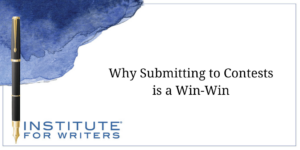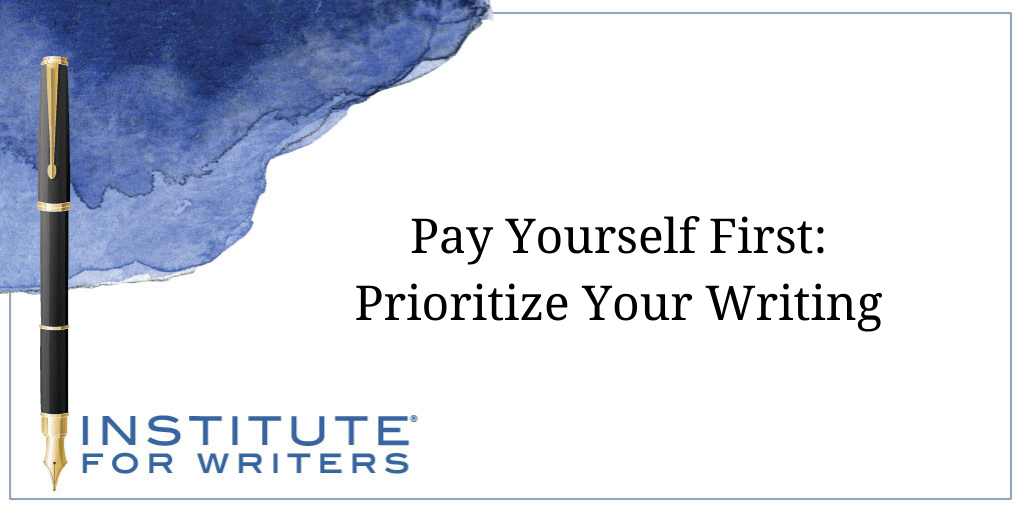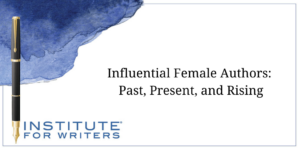
Why Submitting to Contests is a Win-Win
Should you enter a writing contest or not? If your writing rises to the top, you just might win a prize upwards of thousands of dollars if you’re lucky.

We teach our students how to write and get published!
View our Course Catalog >
A year or so after I graduated from college, I was introduced to an investment strategy known as Pay Yourself First. The concept was straightforward. If you wait until the end of the month to deposit part of your paycheck into a retirement savings account, you might discover that it has all been spent.
Naturally, no financial advisor would say that you’d frittered all of that money away. There are legitimate expenses: housing, utilities, food, insurance, clothes, and transportation. And it’s not unreasonable for you to go out for a nice dinner, subscribe to a streaming service, or get away for the weekend. If, however, you pay yourself first by putting a predetermined percentage of your income into an IRA or 401k, all of your other decisions will flow out of that new reality whether it’s the food you eat, the house you live in, the car you drive, or the entertainment you enjoy.
The same thing can be true for your writing. Has it always been the wish of your heart to pursue publication—to share stories that matter with the world? No one could accuse you of frittering away your time with work, family responsibilities, and meaningful community causes. And it’s not unreasonable for you to go out for a nice dinner, binge-watch that fascinating new streaming series, or have a fun weekend away. But if you don’t make a plan of how to dedicate your time to your stories, the end result can be the same. All those hours will have all vanished by the end of the month without a word to show for it.
Stephen Covey, The Seven Habits of Highly Effective People
Financial advisors will often say things like, “People don’t plan to fail; they fail to plan” when they’re helping clients think through what things are necessary to provide for their future. Retirement can seem like a long way off, and there are so many other demands that get in the way.

Often the first step for new investors is to track their expenditures over the course of a month. People might be surprised, and even a little disturbed, by how their coffee habit at Starbucks adds up. Then there are the potential savings for packing a lunch as opposed to going out for a bite with coworkers at noon. Those who haven’t yet made a big decision on cars or housing should also be thinking about how an extra fifty dollars here or there can add up over the course of a year.
Tracking time can be an equally valuable exercise for writers. You might be surprised, and even a little disturbed, by how many hours you spend on your social media habit. Then there’s the temptation to watch an entire night of baseball or basketball rather than limiting yourself to watching that one team you really care about. If you’re asked to assume a leadership role in a volunteer cause that you truly believe in, it’s important to think about all the minutes that you will have to put into that bucket. They’ll have to be taken from somewhere. But as writing coach Esther Hershenhorn has said, “The things that keep us from writing also give us something to write about.”
After tracking your expenditures in time, you should think about where you can make both the cuts and the investments. Small changes can lead to unexpected gains over a period of time. In the margins, you might be able to spend some time scribbling or fine-tuning a scene if you always arrive at your desk 15 minutes early. (Be sure to set an alarm if you’re liable to get wrapped up in your scene!) You might be able to make real progress while waiting to pick up a child from school, preschool, dance lessons, or practice.
But what about bigger chunks of time? In those days when I was staying home with young children, I dedicated their naptime to my characters. Instead of being a weekend warrior with respect to sports, you can dedicate some of that time to drafting. While there are those night owls who do their best work after 10:00 pm, it can be hard for many people to write in the evening when they’re worn out after a long day of demands. So here comes the most familiar advice out there. I’ll let the late Pulitzer prize-winning poet Mary Oliver say it for me:
Believe me, if anybody has a job and starts at 9, there’s no reason why they can’t get up at 4:30 or five and write for a couple of hours, and give their employers their second-best effort of the day – which is what I did.
Whether you’re thinking about money management or time management, every plan will go out the window in a legitimate emergency. Ideally savers can go to their emergency fund that they’ve been building up. Writers should tell themselves that the work will be waiting for them when they’re ready to get back to it. If, on the other hand, writing winds up being an act of self-care, be sure to take that time for yourself.
It will do you good.
Kristin Wolden Nitz has been an instructor with the Institute since 2005. Kirkus described her YA mystery, SUSPECT, as “Intriguing, suspenseful fun.” Many librarians agreed. SUSPECT was a YALSA Best Fiction for Young Adults Nominee as well as a “best book for Language Arts” from the Society of School Librarians International. Kristin’s middle grade contemporary fantasy, SAVING THE GRIFFIN was nominated for children’s choice awards in Kentucky and Georgia. Kristin is a client of Erin Murphy. She lives with her husband in Southwest Michigan.

Should you enter a writing contest or not? If your writing rises to the top, you just might win a prize upwards of thousands of dollars if you’re lucky.

To many, writing is revision, and most writers revise their manuscripts numerous times before they’ve shaped it into the best version that it can be.

We’re going to look at influential female authors of the past, those impacting the present, and whom the industry expects to make a big splash.
1000 N. West Street #1200, Wilmington, DE 19801
© 2024 Direct Learning Systems, Inc. All rights reserved.

1000 N. West Street #1200, Wilmington, DE 19801
© 2025 Direct Learning Systems, Inc. All rights reserved.

1000 N. West Street #1200, Wilmington, DE 19801
©2025 Direct Learning Systems, Inc. All rights reserved. Privacy Policy.
2 Comments